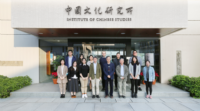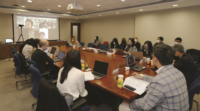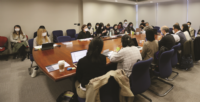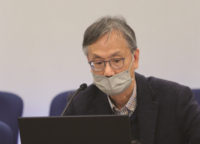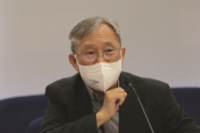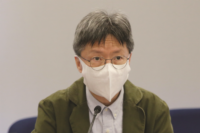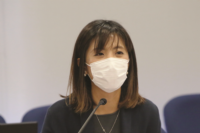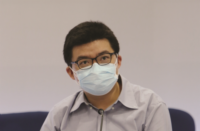This year, the forum was conducted in a hybrid mode, in which the discussants and 11 participants attended in person while seven participants were invited to join via Zoom. The new mode drew about 120 people including CUHK colleagues, students, alumni, and the public. The forum aims to nurture young scholars in Chinese Studies and strengthen their academic networks. With the theme “Chinese Borderlands in Transition: History, Space, and Culture”, this year’s forum invited a total of 18 young scholars to present their research papers. The papers were divided into seven panels scheduled over a period of two days. Topics of interest include but are not restricted to: 1. Emergence of borderland communities and lifestyles; 2. Border-crossing and subsequent cultural activities; 3. Changes in religions and religious practices; 4. Changes in natural and artificial landscapes; 5. Memories and imageries of geographical and cultural boundaries; and 6. Impacts on other geographical regions, cultural spaces, and intellectual domains.
CUHK faculty members including Prof. Lai Chi Tim from the Department of Cultural and Religious Studies, Prof. Lai Ming Chiu from the Department of History, Prof. Li Chen from the Centre for Chinese Studies, Prof. Puk Wing Kin from the Department of History, Prof. Ye Jia from the Office of University General Education, Prof. Yim Chi Hung from the Department of Chinese Language and Literature and Prof. Tsui Lik Hang from the Department of Chinese and History at the City University of Hong Kong, were invited to serve as discussants. The forum, originally scheduled for last year, received 110 applications. 27 applicants were invited though nine withdrew due to the postponement and travel restrictions. The participants came from different regions/countries – seven from mainland China, four from the U.S.A, three from Europe, three from other countries in Asia, and one from Hong Kong – reflecting the forum’s effort to enhance international communication in Chinese studies. |












